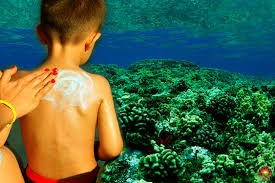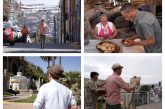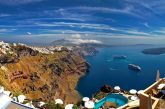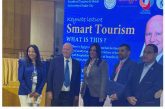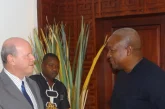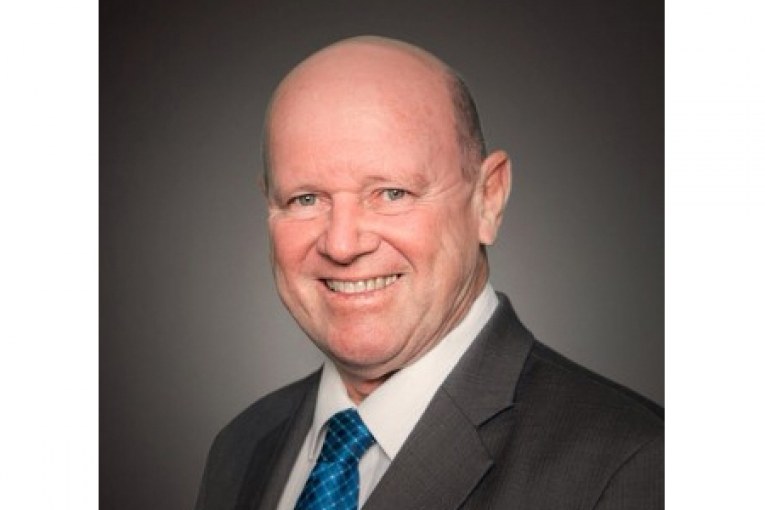
By Alain St.Ange of SAINT ANGE CONSULTANCY
Welcome to Edition #13 of 2017.
Your link to this latest Tourism Report is below:
http://mailchi.mp/1d751590ac49/saint-ange-tourism-report-13th-edition
Our quote for today is one by the Bishop Denis Wiehe, the very respected Roman Catholic Bishop of Port Victoria from his 2013 New Year Message.
“Respect for each person is the basis for true democracy”
Often and too often democracy is seen simply just as a word or a battle cry. So many leaders have little to no belief in true democracy. Analysing discussions and statements being aired all over the place and on social media, the word respect, the basis for true democracy, is today lacking. It is important to remember to message others as you would like to be messaged. When you see someone blaming others, it is so obvious that the person is just avoiding some truth about himself or herself.
Towards the end of this coming week, the World of Tourism will be travelling to Chengdu in China for the UNWTO (United Nations World Tourism Organisation) General Assembly (September 11-16, 2017). Chengdu will be at the centre of tourism as the confirmation of the newly elected UNWTO Secretary General will be tabled to the General Assembly. China will be the host, and global leadership in the field of tourism, will be in their grasp. It will be the opportunity for Dr Taleb Rifai to show the successes of the UNWTO and also pave the way for what will be his legacy. The world at large accepts that the UNWTO is a great organisation and that it is greater than any tourism Minister or personality. The UNWTO must survive the current challenges. The World of Tourism is still questioning the African Union’s endorsement of a candidate for Secretary General that became an ultimatum for Africa with severe economic sanctions threatened if anyone dared challenge this dictatorial approach. The United Nations cannot live with such situations and must distance itself away from bullying tactics that removes the freedom of choice, of association and of engaged participation.
Currently as threats of instability on a global stage is being felt more and its ripple effects becoming more serious, delegates from 155 countries of the World Tourism Organization (UNWTO) scheduled to be in Chengdu, China for the upcoming General Assembly, will need to look at their organisation and at the tourism industry.
Africa on its part will again be re-looking at itself and the need to rewrite its narrative for Brand Africa. The 54 States that make up the Continent of Africa remain committed to the consolidation of tourism for their country, and they are all individually working tirelessly on their key tourism source markets to consolidate their tourism. Often this is hampered by the actions or inactions, and the happenings in some of the States of Africa. Ongoing abuse and lack of respect and democracy is eating away at human rights, and the absence of the rule of law remains troubling. This affects the narrative for Brand Africa. A recent article appeared in the Middle East and Africa section of a print edition under the headline “Bleak house” where it is written that the World Justice Project, an NGO based in Washington, DC, considers the main points listed in this report among 44 factors to construct an annual Rule of Law Index. This article hides nothing when Afrobarometer, a pollster, asked people in 35 African countries whether they thought judges were corrupt, 65% said that “some” or “most” of them were. Another 11% did not hedge their bets, answering that “all of them” were crooks. Africa cannot and will never be just a tourism destination onto itself, it needs to be part of the global community it relies on for its tourists and trade.
A glimmer of hope is on the horizon with PMAESA, (Ports Management Association of Eastern and Southern Africa) moving to push the concept of “Cruise Africa” forward in a bid to ensure that Africa’s lakes, waterways and ports harness the great potential it has to capture more from the cruising niche market. This drive is great support for the new ports in Kenya and South Africa and the landlocked countries with beautiful lakes and waterways.
The narrative about Africa needs to be rewritten when tourism is set to get more challenging. Point to point travel is set to progressively change the existing ‘hub and spokes’ concepts where big hubs had been established as transit centres providing a base for two and three country holidays. What Qantas has announced, as preparations for the launch of the world’s longest nonstop flights between Australia and London, will take some four hours off existing routes and is seen as revolutionary for air travel in Australia.
‘Most direct routes and at the best rate’ will undoubtedly channel Europeans to a new London Hub for flights to Australia. This is fact as Qantas has now confirmed that it is preparing to operate the world’s longest nonstop commercial flights, direct from Sydney to London and from Sydney to New York.
These nonstop flo operate from Melbourne and Perth. The 20-hour Sydney to London nonstop journey will take passengers straight to London in the latest Airbus or Boeing airliner, depending on which aircraft manufacturer can best fly the distance and shaving some four hours from existing flights between Australia and London and some three hours from Melbourne to New York.
‘ Finally it is important to again today acknowledge all who are diligently re-posting the Saint Ange Tourism Report weekly. Our Report ranges far and wide, from Australia to the Americas, from the Indian Ocean Vanilla islands to Africa & Asia and Greater Europe, with your continued support, which is greatly appreciated.
You are helping us to go from strength to strength with each new Edition.
Enjoy the read, Alain St.Ange Saint Ange Consultancy
Is your sunscreen destroying coral reefs?
Climate change has been deemed the most general culprit of coral bleaching globally. However, recent studies have shown that a common compound, oxybenzone found in sunscreen is causing mass devastation to coral reefs.
The UV-absorbing chemical has been shown to poison coral in several ways.
In recent studies, biologists have shown that this compound disrupts reproduction and growth, leaving young corals fatally deformed.
Even in minute doses, the researchers found, oxybenzone rapidly bleaches coral and slows new growth: A single drop in 4.3 million gallons of water (about six and a half Olympic-size swimming pools) is enough to be deadly.
It is estimated that 14,000 tons of sunscreen lotions end up in coral reefs each year.
Popular phrases such as the Australian ‘slip-slop-slap’ motto have been used prominently by media to encourage people to apply sunscreen to protect against the harmful effects of the sun’s UV rays.
It’s a certainly a cruel irony that skin protection has come at such a cost to the ocean. Fortunately, there are alternatives. Mineral sunscreens which have the active ingredients titanium dioxide or zinc oxide are one option.
As mentioned in a previous issue of the Saint Ange Tourism Report, coral reefs can contribute a substantial amount to the marine environment and to the economies of countries that are lucky to have them.
Therefore, it is in the benefit of those countries to do all that they can to help preserve these ecosystems. Many places such as Hawaii, the Virgin Islands and South Florida are beginning to follow through with the banning of sunscreens containing oxybenzone.
It is hope that many other countries including the Seychelles will follow in their footsteps in order to preserve coral reefs for future generations.
Contributed by Ameer Ebrahim, Environmental Consultant



